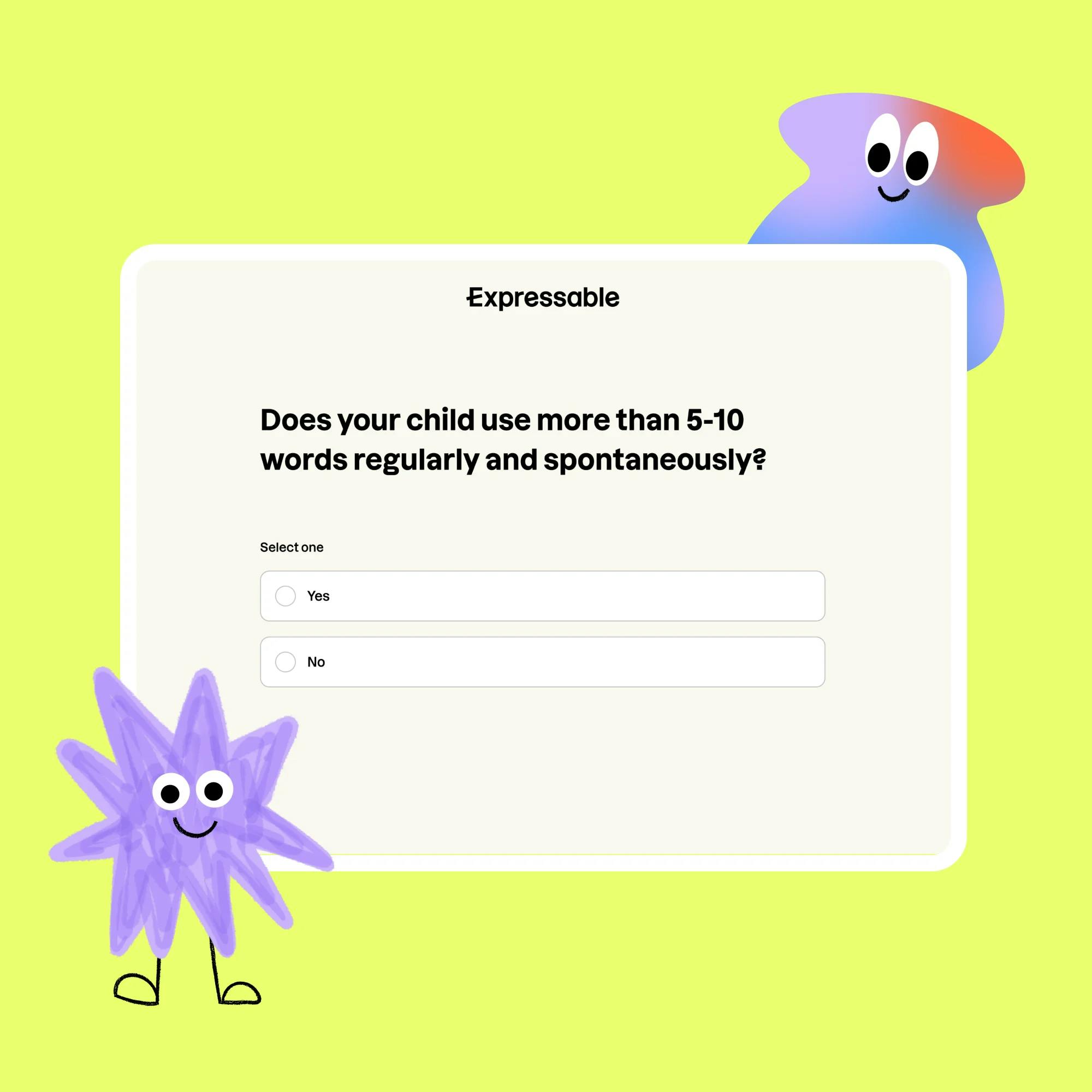
It's Never Too Late for Your Child to Start Speech Therapy
 Abby Barnes, M.S., CCC-SLP
Abby Barnes, M.S., CCC-SLP
As a parent or caregiver, you want your children to thrive in every area of their lives. But let’s face it: Caring for kiddos while also working, managing bills, keeping track of schedules, and–just maybe–taking care of your own self can be a challenge! Some days it doesn’t seem possible to fit it all in.
When it comes to speech and language development, catching a delay or problem early is ideal. This is called early intervention, and it allows kids to make progress and close gaps more quickly.
But children don’t always receive needed services right away, and there can be several reasons for that. Their caregiver simply might not know there’s a problem. They may not be aware of the signs to look for. Or, the caregiver may suspect their child has a communication problem, but they don’t reach out to a professional right away. That may be because of time constraints, finances, or just not knowing where to start.


No matter why a child hasn’t received services early on, caregivers need to know that it is never too late to begin supporting their child’s development. We can’t go back and change the past, so don’t focus on the “what if?” Focus on the “what now?” The moment you begin taking steps to support your child’s speech and language is what matters–no matter when it happens!
Let’s take a closer look at general speech and language milestones for the early years, how to identify possible problems, and how kids of any age can benefit from speech therapy.
Overview of speech and language milestones, birth to age 5
Here’s an overview of general speech and language milestones for babies, toddlers, and young children, from birth through 5 years of age. Learning more about these skills can help you know if your child is on the right track with their development.
0- to 18-month milestones
So many communication milestones occur during a child’s first 18 months. This is a time when babies and toddlers are soaking up everything in their environment and learning the basics of language and interaction with others. Here are some of the primary skills they should demonstrate:
First smile: 3 months
Laughing: 3-6 months
Babbling: 6-9 months
Imitating sounds: 6-9 months
First words: 12 months
Playing appropriately and following simple directions: 12-18 months
Using more spontaneous words and some phrases: 12-18 months
18- to 36-month milestones
The 18- to 36-month age range is full of rapid language development! Toddlers should begin communicating more clearly and using more words and phrases. Speech and language milestones for ages 18 to 36 months include the following:
Following one-step directions (18 months)
Following two-step directions (24 months)
Using short phrases (24 months)
Learning to say and understand new words weekly (24 months)
Naming shapes and colors (36 months)


3- to 5-year milestones
Children are experiencing big growth in speech and language skills at age 3. And while 4-year-olds and 5-year-olds are still growing their language skills, too, at that age it becomes more about the refinement of these abilities. Their speech begins to sound more correct, and they can communicate well with most anyone. Here are some of the key milestones for preschoolers and kindergarteners:
Can answer most questions asked of them (3 years)
Use pronouns correctly (3 years)
Use at least four-word sentences (3 years)
Tell short stories (3 years)
Understand time-based concepts (4 years)
Can speak very clearly (4 years)
Can engage in conversation well with kids and adults (4 years)
Use mostly correct grammar (5 years)
Recognize rhymes (5 years)


What if your child isn’t meeting speech and language milestones?
If your child seems behind on milestones for their age, there is a chance that they may be delayed. Keep a close eye on their current skills compared to what’s expected for their age. Along with the links above, you can look at the speech and language milestones from the American Speech-Language-Hearing Association or the CDC’s developmental milestones.
If you’re concerned about your child’s development and you don’t see improvement over a period of time, don’t wait to speak with a professional. Trust your instincts! Talk with your child’s pediatrician about your concerns. You can also get in touch with a speech-language pathologist, also known as a speech therapist, to ask their opinion and find out if a speech evaluation is needed.
It’s important to reach out to professionals as early as possible, not only to get your child the help they need, but also because of logistics. There are often long wait lists with therapy companies, and first appointments or evaluations may take awhile to schedule. It never hurts to start the process as soon as you feel there is a need.


Children can start speech therapy at any age
It’s true that children make the most progress as quickly as possible when they start speech therapy at a young age. The faster a child’s difficulties can be identified, the faster they can get help and begin communicating more clearly.
However, if you are just now able to get your child into therapy and you’re wondering if it’s too late–it’s not! Is early intervention ideal? Yes, absolutely. But would a speech therapist recommend that a child not do therapy just because they didn’t start earlier? Definitely not! Everyone deserves the chance to be a clear, confident communicator. Speech therapy can be life-changing, and beginning later is better than never receiving it at all.


Think about it like this. Imagine you were sick with an infection, and your doctor didn’t catch it as soon as you began to feel ill. But it was eventually diagnosed and you were prescribed medicine. Would you not take the medicine since it wasn’t prescribed as early as it could’ve been? Of course not! You would start treatment in order to get well.
Even teenagers can benefit from working with a speech therapist.
It’s the same with speech therapy. Even teenagers can benefit from working with a speech therapist. Teens are still growing and developing, and speech therapy for teenagers can support them in speech sound articulation, social-language skills, communication abilities, and even executive function skills.


In reading this article, you’re taking a first step in your child’s speech and language journey. Raising kids is hard work, and ensuring their needs are met is no small task. You deserve a pat on the back for all you do for your child, and for recognizing they may need speech and language support. No matter their age, speech therapy can open their world, helping them express who they are and connect with other people. Your child will thank you for it!
How Expressable Can Help
Concerned your child isn't reaching age-expected milestones? Looking for communication support from a professional? Expressable is a national online speech therapy practice serving children and adults. We treat all major areas of communication and feeding, offer flexible hours including evenings and weekends, and accept most major health insurance plans. We’re proud to have earned more than 3,000 5-star reviews from our clients (4.9/5 average).
Our therapy model is centered on parent and caregiver involvement. Research proves that empowering caregivers to participate in their loved one’s therapy leads to better outcomes. That’s why we combine live, 1-on-1 speech therapy with personalized education and home practice activities for faster progress.
Communication is more than words. It’s how we share how we feel and show who we are. We’re here to help you or your child do just that.










